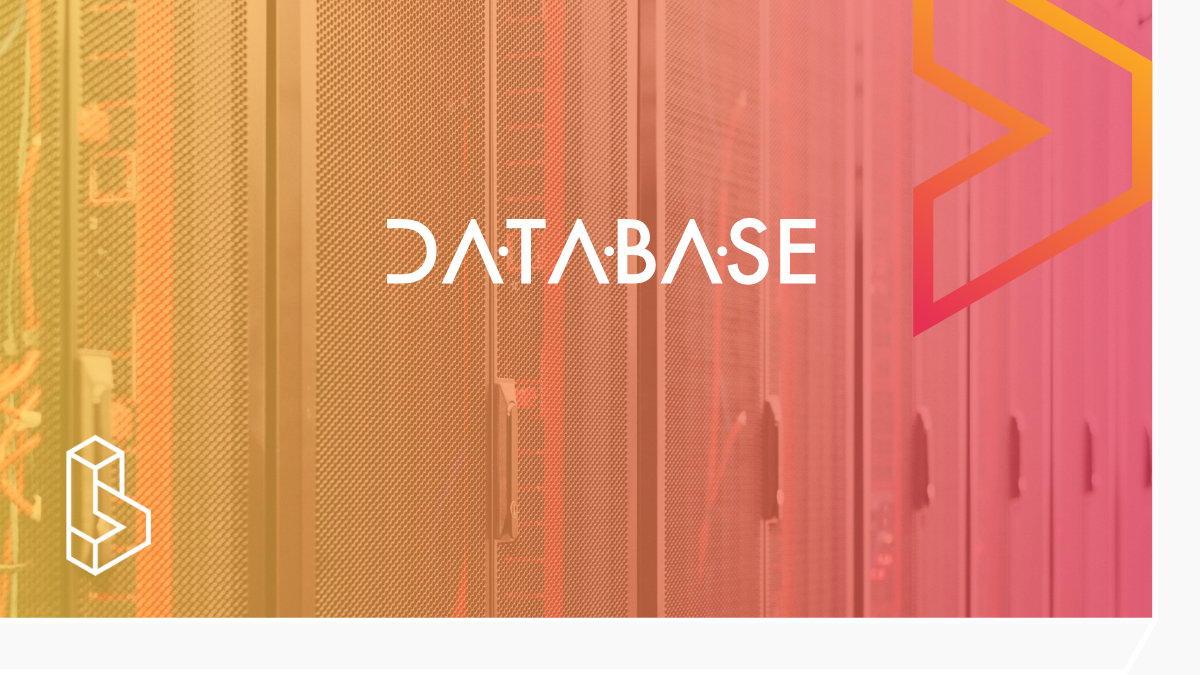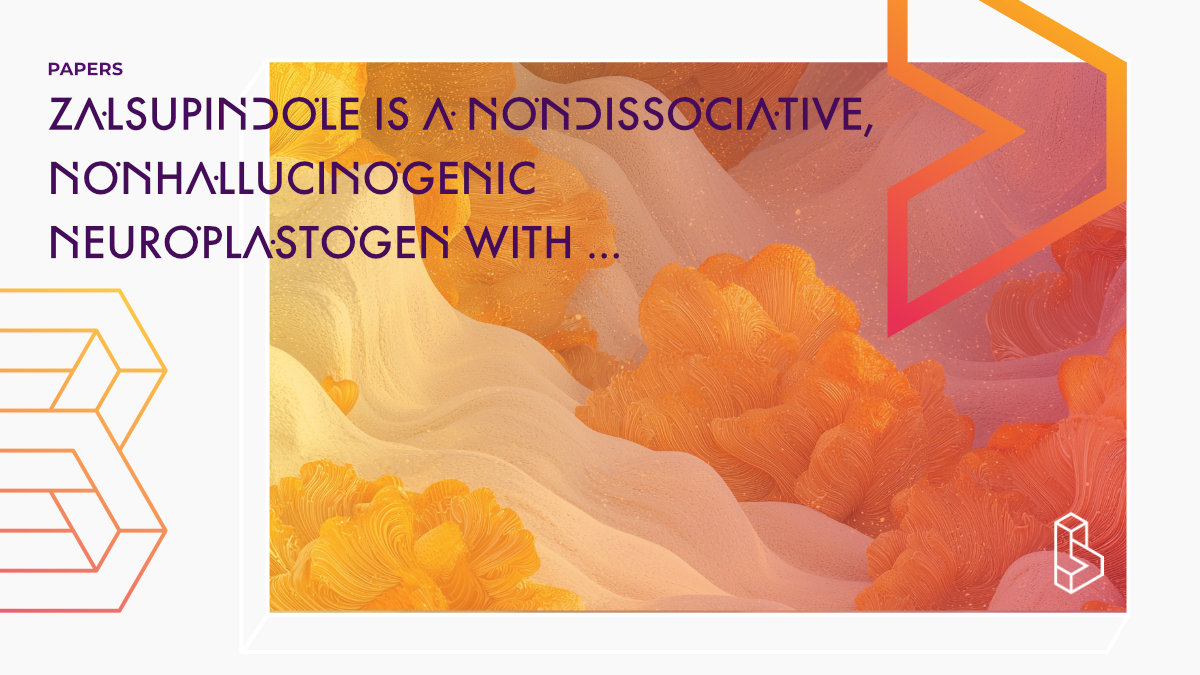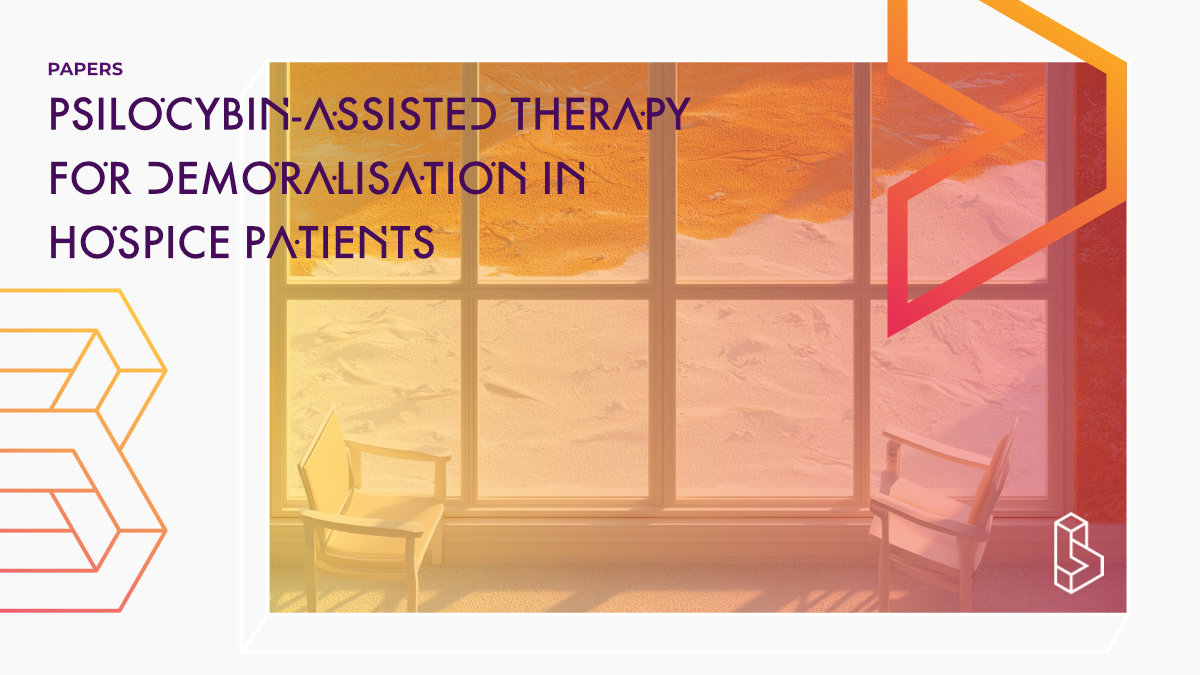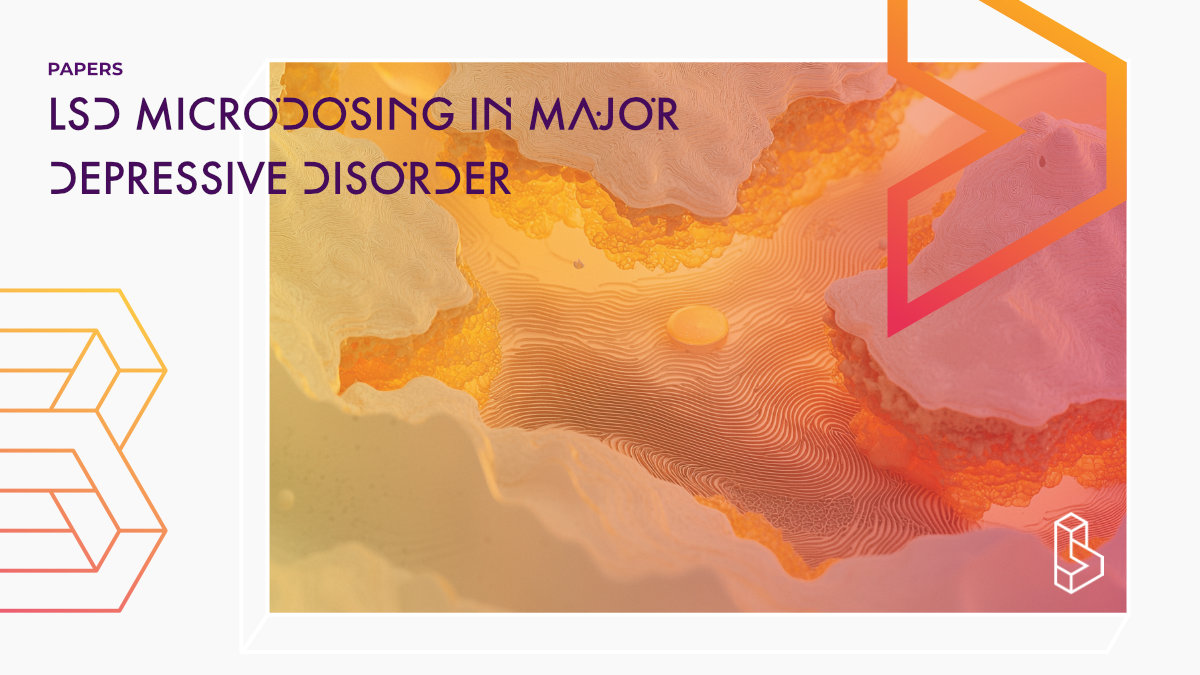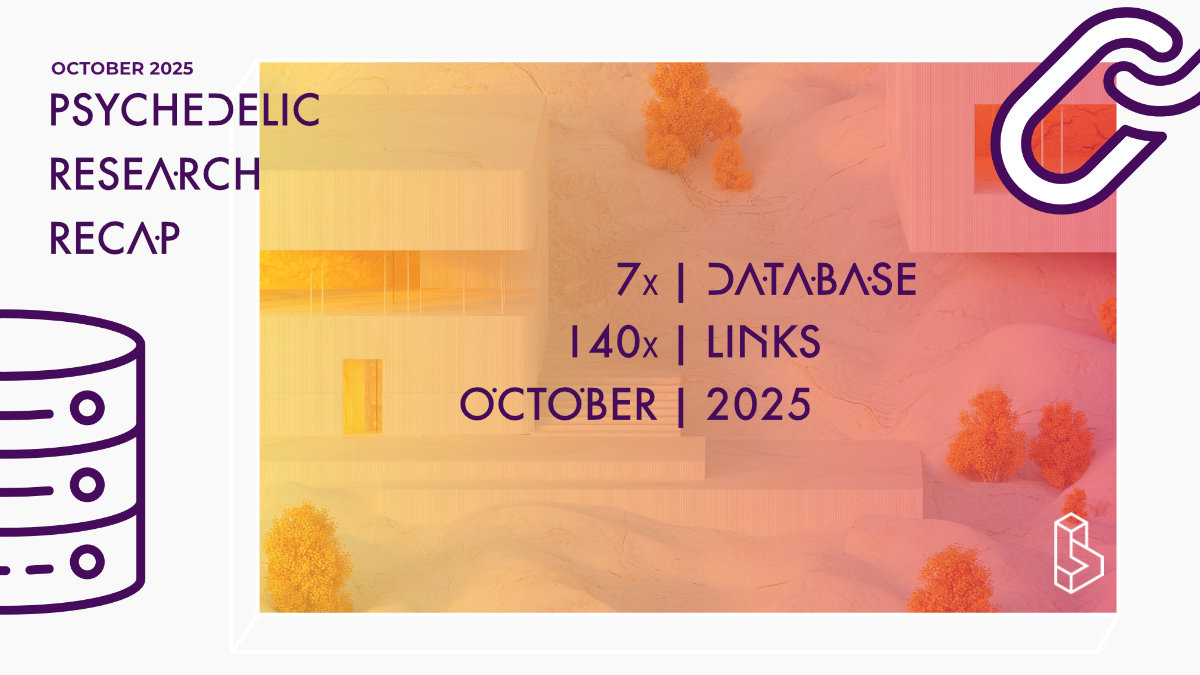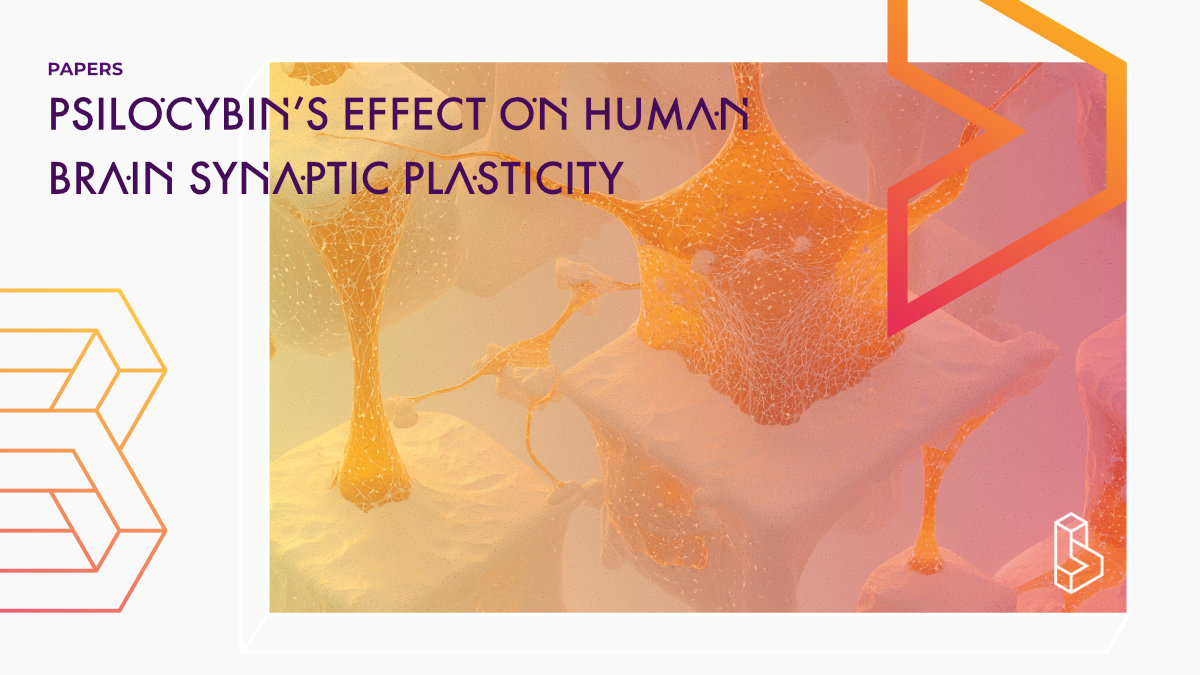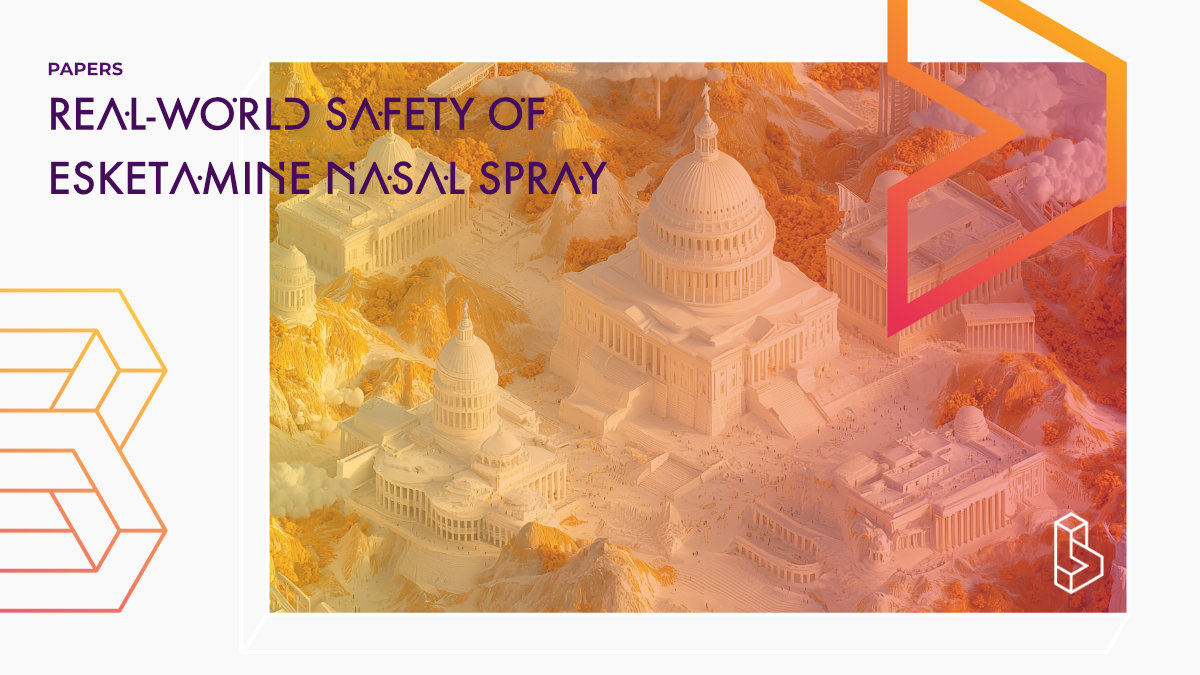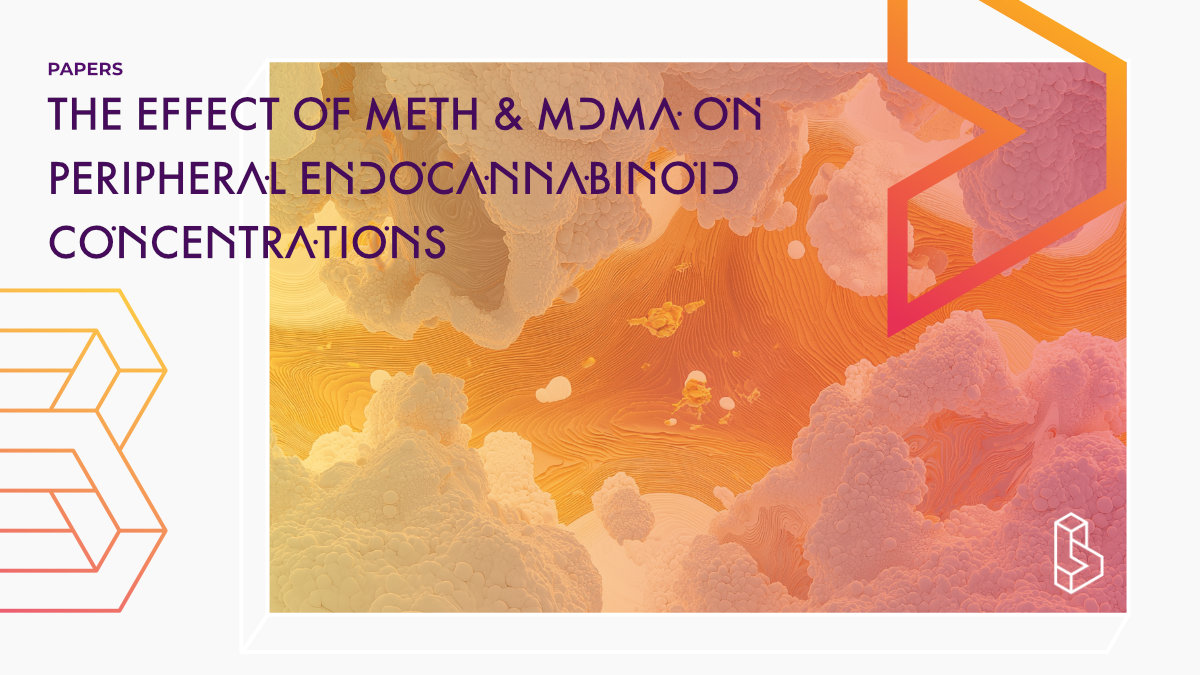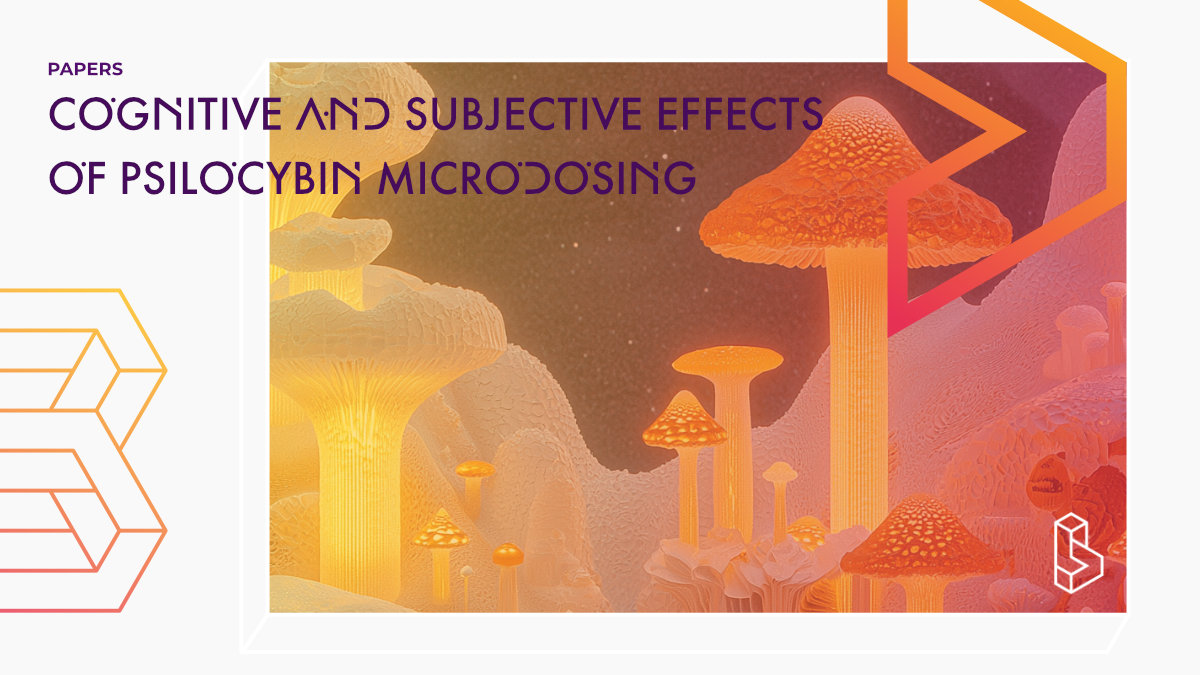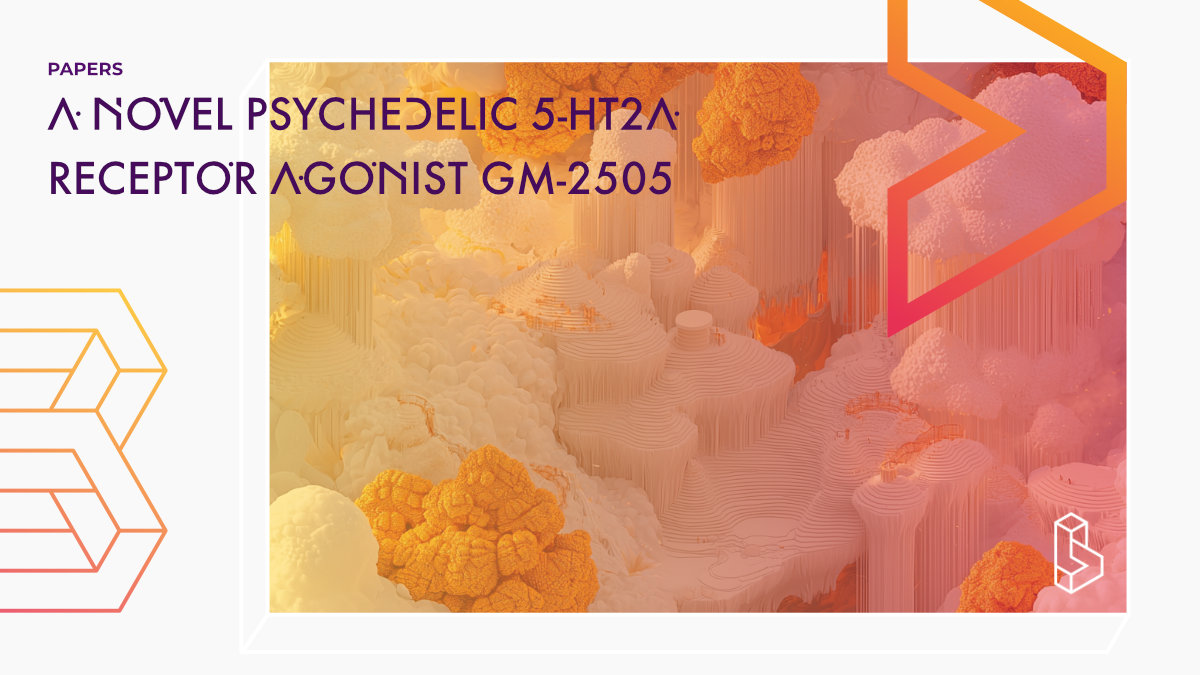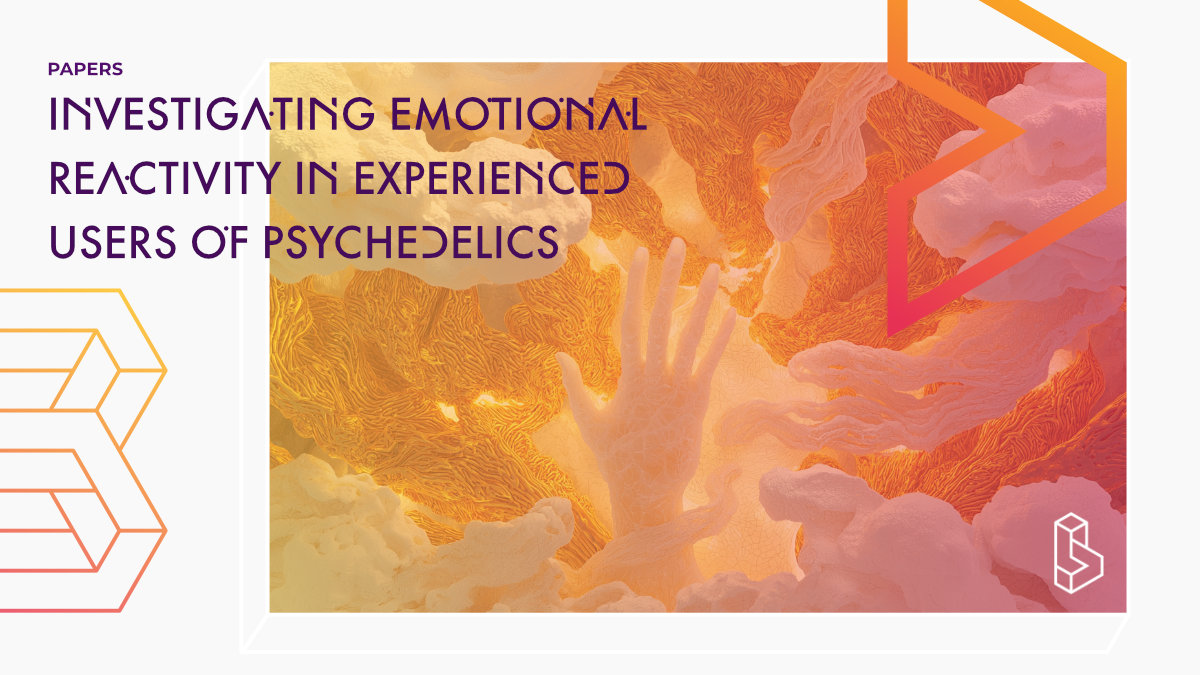You are now searching through our whole database. To make more specific queries, you can use our menu or go directly to papers, companies, trials, or events.
This preclinical pharmacology study in rats found that zalsupindole (third-generation psychedelic) produced robust effects on structural and functional neuroplasticity in the prefrontal cortex as well as sustained antidepressant-like responses comparable to or greater than those of ketamine, psilocybin, and DMT, despite lacking any of the acute cellular and behavioural characteristics of hallucinogenic or dissociative compounds.
This open-label pilot trial (n=10) found that psilocybin-assisted therapy (25mg) delivered to terminally ill home hospice patients was feasible and safe, significantly reducing demoralisation scores at week 3, though the emotional intensity of the intervention affected acceptability for some participants.
This open-label Phase IIa trial (n=19, 15 male) found that an 8-week regimen of microdosed LSD (8μg initially, then 6-20μg twice weekly) for major depressive disorder was well-tolerated with no serious adverse events or cardiac valvulopathy, achieved 59.5% reduction in MADRS scores sustained for six months, and had only one withdrawal due to anxiety.
Psychedelic research in October investigated brain plasticity, set and setting, and microdosing.
This pre-print double-blind placebo-controlled trial (n=15) found that healthy participants who had a psilocybin-induced psychedelic experience in a therapeutic-like room exhibited more intense mystical-type experiences, longer-lasting psychological benefits, and greater increases in synaptic density than those dosed inside an MRI scanner, indicating that psilocybin's neuroplastic effects are modulated by environmental context.
This real-world safety analysis of esketamine in the United States (n=58,483 patients, 1,486,213 treatment sessions over 58 months) found that sedation, dissociation, and increased blood pressure occurred in 34.7%, 41.0%, and 0.9% of sessions respectively, with serious adverse events in <0.1-0.18% of sessions, suicide rates lower than background rates, and 210 cases of abuse/misuse reported, confirming the established safety profile with no new safety signals identified.
This within-subject, double-blind study (n=22) found that acute administration of methamphetamine (14 mg/70 kg) significantly lowered plasma 2-arachidonoylglycerol concentrations compared to placebo at 150-180 minutes post-administration, whilst MDMA (100 mg) did not affect endocannabinoid levels, and higher anandamide concentrations during the placebo condition correlated with disliking the 'drug effects'.
These two randomised, double-blind, placebo-controlled trials (n=141) conducted in semi-naturalistic settings found that microdosing psilocybin truffles did not significantly affect cognitive control, memory, social cognition, subjective well-being, attention, mood, or self-reported cognitive flexibility compared to placebo. Initial effects in some domains did not remain significant after correcting for multiple comparisons.
This Phase I single-ascending dose, randomised, placebo-controlled, double-blind study (n=48) found that GM-2505, a novel 5-HT2A receptor agonist, demonstrated an acceptable safety profile with mild transient adverse events at intravenous doses up to 20 mg, a half-life of 40-50 minutes, and dose-dependent effects on neuroendocrine hormones, neuropsychological measures, and resting-state electroencephalography similar to other 5-HT2A receptor agonists but with a duration of effects shorter than psilocybin and longer than DMT.
This cross-sectional fMRI study (n=67) found that experienced psychedelic users (≥10 lifetime experiences) showed faster and more accurate recognition of angry facial expressions alongside diminished neural responses to anger in limbic and salience network regions, enhanced responses to happiness in parietal and sensorimotor areas, and reduced emotional differentiation in default mode network regions compared to non-users.
Psychedelic Database
Find everything on psychedelics as medicine. This page allows you to search through our whole database, from research papers to news articles, and from clinical trials to academic articles.
Next to our databases, don’t forget to check out our reports. The reports bring together the separate pieces of information from our database entries into written reports.
